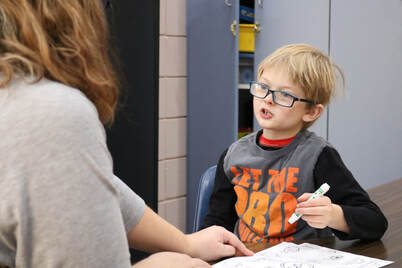|
|
Speech Therapy
building stronger
communication
A Chance To Grow's Speech-Language Pathologists (SLPs) work with individuals of all ages who are experiencing communication challenges and speech disorders. Our knowledgeable team of SLPs is experienced in a variety of approaches to address your communication concerns.
Schedule an assessment today!
If you believe you or a loved one may have a communication deficit that is impacting his or her academic or social experience, we believe we can help. School-based services, and Spanish services are also available. Please complete a Scheduling Request to get started.
If you believe you or a loved one may have a communication deficit that is impacting his or her academic or social experience, we believe we can help. School-based services, and Spanish services are also available. Please complete a Scheduling Request to get started.
Assessments by appointment only |
Complete a
Symptoms Check
|
If you or your child struggles with understanding or communication issues, A Chance To Grow's Speech Therapy Services may be the perfect wellness therapy for you. Please fill out our Symptoms Checklist to help us learn a little bit more about your current situation.
|
Symptoms of |
|
|
Symptoms of Communication Deficits:
- Combining Words
- Not Saying Words / Sounds
- Difficulty Following Directions
- Stuttering
- Executive Functioning
- Poor Cognition and Memory
- Sentence Structure
- Lacking Eye-Contact
- Poor Vocabulary
- Difficulty Understanding Them
Because all of our services work collaboratively, we will refer you or your child to the following services at A Chance To Grow if appropriate: Vision Services, Audiology Services, Occupational Therapy and Neurofeedback Services.
What our clients say
"Our son has Autism, and before we came to ACTG, he only made sound effects, he wouldn't speak. Now, after two years of coming to speech therapy, he talks a lot, he can play board games, and jokes around with his therapists! He's much more interactive than he used to be!" - Father of SLP client
Visit our Success Stories page and see what else our clients say about us!
Have our Speech Therapy services helped you? Share your story!


